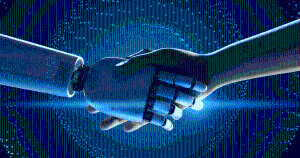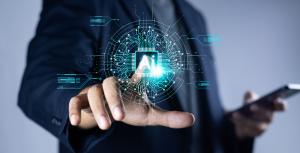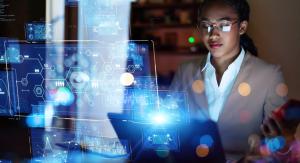DIGITALIZATION AND TECHNOLOGY: THE NEW EDUCATIONAL IMPERATIVE - Asset Display Page

DIGITALIZATION AND TECHNOLOGY: THE NEW EDUCATIONAL IMPERATIVE

DIGITALIZATION AND TECHNOLOGY: THE NEW EDUCATIONAL IMPERATIVE
dubna 20, 2021
It’s fundamental that we can educate our societies technologically so they may understand and take advantage of the technologies shaping the world.
In the 1930s, one scientist was already warning that humans were altering the planet’s climate. British engineer Guy Stewart Callendar noted that the North Atlantic region had warmed significantly just after the Industrial Revolution.
Unlike Callendar however, most people were not thinking about the long-term effects of the Industrial Revolution at the time. The Western world embarked on a process that upended society and the economy only hoping that the positive effects of the new technologies would outweigh the potential dangers.
Some of the technologies being developed can generate progress, but we must also take into account their possible negative effects
Half a century later, it was clear that Earth was paying a hefty price, but it was not until the mid-2000s — when former U.S. Vice President Al Gore introduced An Inconvenient Truth to the public — that climate change finally became an urgent matter, and the negative consequences of the First Industrial Revolution came home to roost.
As 2020 comes to an end, we are well into the Fourth Industrial Revolution. But this time, with the benefit of hindsight we can choose what kind of world we want to build with digital technologies instead of just hoping for the best.
In fact, some of the technologies currently being developed — Artificial Intelligence and Machine Learning, to name only two — have the potential to make or break humanity.
For societies to be able to decide which technological effects to magnify and which to mitigate to create a world that is still human-friendly, digital knowledge cannot remain concentrated in the tech industry. Policy makers, educators, parents, consumers — we all need to be fluent in digital technologies if we want to build a world that is inclusive and works for all.
Unfortunately, this will not happen unless governments, institutions and technological companies intentionally set out to educate people.
The lack of depth in the digital knowledge of the world population will not improve with time. Contrary to popular belief, being digitally native is not enough to grasp all the intricacies and implications present in a world driven by technology — it can even be counterproductive.
Some of the technologies currently being developed have the potential to make or break humanity
Young people who were born digital have a more intuitive feeling of how technology works, but most of the time that familiarity prevents them from going any deeper. They know how to use an app, but they may have very little idea about what lies behind the user interface —how their data is being used or what types of decisions the algorithm is making for them, for instance.
So far, governments, schools, families, and other social institutions have been the places where digital knowledge has been transferred. The acceleration of technological change, however, is making it difficult for these institutions to keep up.
As Artificial Intelligence becomes more prevalent, for instance, a lay person will need to know much more than just how to interact with it
Unfortunately, AI is extraordinarily complex. That’s why the greatest responsibility for educating the public —and including people who are not AI experts into the conversation about what we need and what we should expect from this technology — falls on us, the tech sector.
At NEORIS we have been sponsors of technical knowledge for two decades at our Innovation Labs, where we have trained thousands of young adults. But technological education needs to start much earlier — in elementary school — and get to a much broader swath of society.
Government officials need to have enough technical knowledge to understand what types of political, social, and ethical issues can emerge as technology evolves.
Take, for instance, the case of social media. Facebook will be 20 years old in just a few years, and governments are only now starting to question the values and ethics behind its algorithms. The same is happening with Google, whose monopolistic power in the market of search went mostly unnoticed — the exception has been the European Union — until now.
Digital technology can create enormous prosperity. 2020 has convinced even the most skeptical. But this tumultuous year has also shown that the equal distribution of that prosperity is not a given. The gap in broadband access, digital knowledge, and capital between the developed and the developing world and between urban and rural is the Fourth Industrial Revolution’s Achilles heel.
As digitalization accelerates, we face a once in a generation opportunity: we can learn from our experience with the First Industrial Revolution and take an active role in gearing technological change towards promoting inclusive and equitable digital societies. If we don’t, we may end up with the digital equivalent of a climate catastrophe on our hands.
To download full report
Featured
-
Innovación con perspectiva de género: cómo la diversidad impulsa un futuro tecnológico más inclusivo
dubna 23, 2025
-
Los Agentes de IA revolucionan la experiencia del cliente y potencian el talento humano
dubna 22, 2025
-
EPAM NEORIS inaugura su hub de Inteligencia Artificial en Madrid
dubna 2, 2025
-
NEORIS lanza la cuarta edición de 'Impulsando Talento' para formar a jóvenes en tecnología
března 25, 2025
Most viewed
-
IA, SIM Swap y disrupción: las tendencias más destacadas del MWC 2024
března 25, 2024
-
NEORIS se convierte en Socio del Año de Microsoft
července 23, 2020
-
Microsoft reconoce a NEORIS como socio del año para SAP en AZURE
července 23, 2020
-
Cristina Valles (NEORIS), entre los mejores directivos de recursos humanos según Forbes
června 26, 2024










